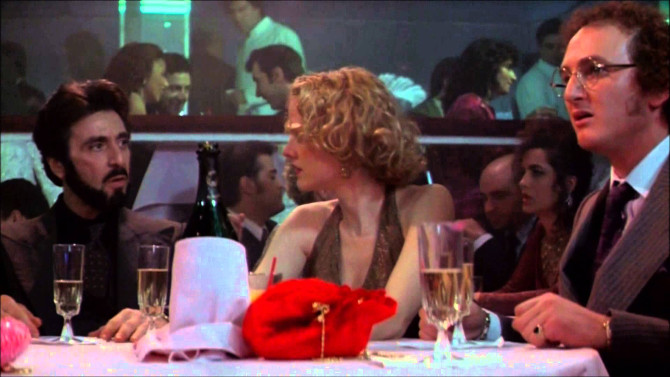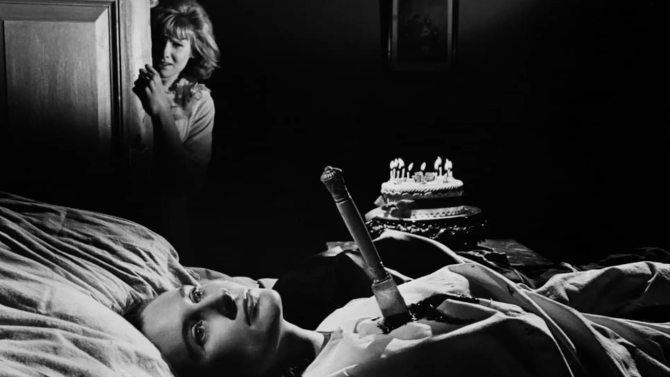
Night Terrors
Unlike most other memorable Hammer horror movies, the 1964 mystery thriller Nightmare, directed by Freddie Francis (perhaps better known as the cinematographer of films like David Lynch’s The Elephant Man and Martin Scorsese’s Cape Fear) eliminates all of the monsters for an old fashioned quasi ghost story... the piece deserving to be remembered up there with those Hammer horror films centered on vampires, resurrected corpses, and lycanthropes. Shot in shadowy black and white, the story follows struggling seventeen year old Janet (Jennie Linden), who is currently away from home living at a finishing school for girls.
-
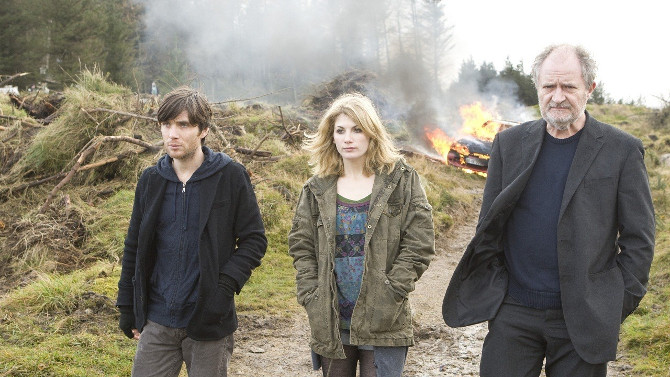
Perrier a Worthwhile Bounty for Audiences
Perrier's BountyDecember 11, 2016Narrated by the Grim Reaper (Gabriel Byrne), 2009's Perrier’s Bounty is an intriguing Irish film that mixes action and comedy within a crime story (all centred around a complex father/son relationship). Written by Mark O’Rowe (who also scribed the entertaining 2003 flick Intermission) and directed by Ian Fitzgibbon, they thrust us into the life of protagonist Michael McCrea (Cilian Murphy), a flawed, complicated figure who just happens to be sleeping in the afternoon while two thugs, Ivan (Michael McElhatton – Roose Bolton in Game of Thrones) and Orlando (Don Wycherley), sit on his couch eating his pistachios. Henchmen to a dangerous gangster, Darren Perrier (Brendan Gleeson), the duo remind the recently woken man that he owes the crime boss a hefty sum that must be paid in four short hours. Surrounded by an ever-complicated life, his female best friend Brenda (Jodie Whittaker), who lives one floor down, is struggling with her longtime boyfriend Shamie (Pádraic Delaney), while his father Jim (Jim Broadbent) arrives out of the blue and states that he is dying of cancer – the two have not spoken in some four years. Pushing them to the periphery while he deals with the more pressing problem of Perrier, he reaches out to a local drug dealer, Clifford (Domhnall Gleeson), as the man knows every low life in the city of Dublin. Getting directions to The Mull (Liam Cunningham – Davos Seaworth in Game of Thrones), a loan shark, he petitions him for some cash. Having none of it, instead, The Mull invites him to partake in a criminal venture with his buddy Dinny (Breffni McKenna), and Michael, desperate for any solution, agrees.
-
Star Pick with Christian de la Cortina
 Show Me the WayCarlito's WayDecember 6, 2016
Show Me the WayCarlito's WayDecember 6, 2016Following the special screening of the Canadian independent film Generation Wolf at the historic Port Theatre in Cornwall, Ontario, I sat down with filmmaker Christian de la Cortina – who co-wrote, produced, directed and starred in the entertaining crime flick. Cortina, who works out of Quebec, has had a fruitful start to his career, dabbling in many French language television series and miniseries, including La Marraine, 19-2, Mon Ex à Moi and O’, as well as procuring roles in American productions being filmed in La Belle Province, including last year’s highly touted Academy Award nominee Brooklyn. 2008 was a watershed year for the man, as he released his first feature film – Transit, which he also produced, directed, wrote and starred in. Seeing it as an opportunity to concoct intriguing roles for himself and others (as he did not want to be placed in a position where he may only receive similar roles throughout his career – in other words, typecast), Generation Wolf can be seen as a successful extension of that plan – as it depicts an engaging story that is chock full of richly drawn characters.
-
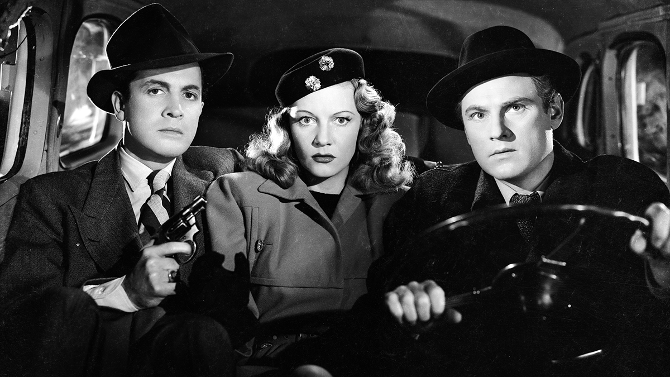
Confessions of a Fatal Femme
DecoyNovember 30, 2016Taking the rare angle of having the femme fatale be the voice-over narrator, the 1946 film noir Decoy, directed by Jack Bernhard, does a lot with the little budget it had. Perhaps the most brutal dame of them all, Margot Shelby (Jean Gillie) is shot at the very beginning of the story, wounded by a then unknown assailant. It is at this point that she recounts her sordid tale. Honey to a rough and tumble aging gangster, Frankie Olins (Robert Armstrong), the man has been placed behind bars following a robbery – which left a guard dead and the thief four hundred thousand dollars richer (which he hid before he got caught). Soon to be sent to the gas chamber, he still has hope that his girl, along with a gangster associate, Jim Vincent (Edward Norris), will find a way to help him escape his doomed fate. Vincent, already short tens of thousands in aiding his fellow hoodlum, is not eager to throw more dough his way.
-
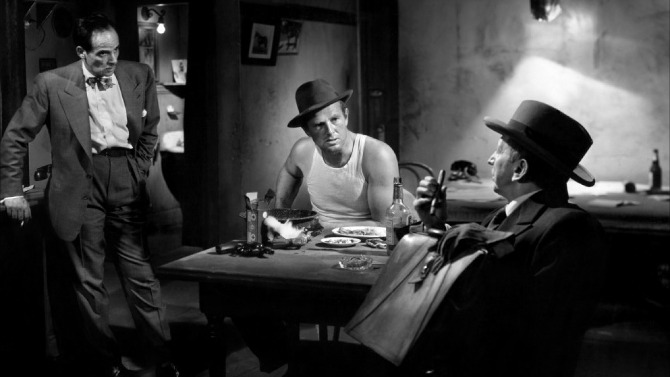
Welcome to the Jungle
The Asphalt JungleNovember 28, 2016Perhaps one of the best descriptive titles to ever come out of Hollywood is The Asphalt Jungle (even though it is the title of the book the film is based on). Directed by John Huston, the 1950 title vividly exemplifies film noir: a dark, gritty, dog-eat-dog world – its only difference from the animalistic wilderness is the stark stone and cement infrastructure that frames the vice-filled world. Oh, and are there vices! Each character has his or her own cross to bear – dragging them down into a world of sin and sorrow. As Doctor Erwin Riedenschneider (Sam Jaffe), the mastermind of the heist, puts it: "One way or another, we all work for our vice". Youthful gals, wealth and extravagance, liquor, gambling on the horses, and an infatuation for a specific man are just some of the misdeeds you’ll find in this movie. The above mentioned Doctor, recently released from prison, has devised an intricate heist – the take, at least one million dollars. Reaching out to a name he heard bandied about on the inside, he visits a bookie by the name of Cobby (Marc Lawrence). Needing the proper backing, a meeting is set between the man with the plan and a prominent, albeit shady lawyer, Alonzo Emmerich (Louis Calhern).
-
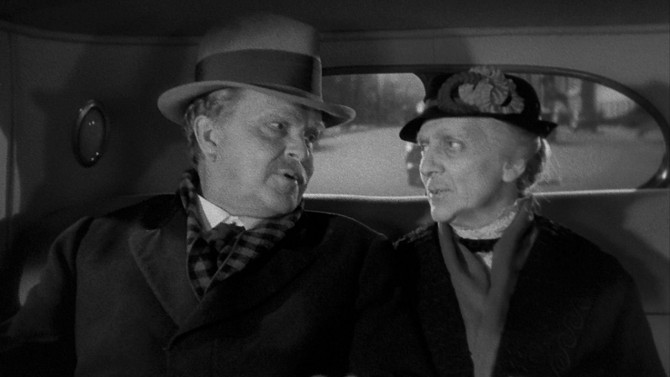
Here Today, Gone Tomorrow
Make Way for TomorrowNovember 11, 2016Upon winning Best Director at the Academy Awards for his 1937 screwball comedy The Awful Truth (the highest grossing film of the year), Leo McCarey took his Oscar, turned to the applauding crowd and uttered the unusual acceptance of "I want to thank the Academy for this wonderful award . . . but you gave it to me for the wrong picture". The movie he was talking about was the powerfully emotional drama Make Way for Tomorrow. A bust at the box office, the film still brought recognition to one of the premier filmmakers of the era. Being a favourite of John Ford, Frank Capra, Jean Renoir, Ernst Lubitsch, George Bernard Shaw and Orson Welles (who called it one of the saddest films ever, claiming that "it would even make a stone cry"), as well as being the inspiration behind Yasujirô Ozu’s classic 1953 picture Tokyo Story, this is a pure piece of emotional film making. Funnily enough, though praised by iconic filmmakers and ardent film fanatics alike, it is probably one of the least known motion pictures out there. Nearly unseen, thankfully Criterion has released it, providing the movie with an avenue to finally reach a larger audience.
-
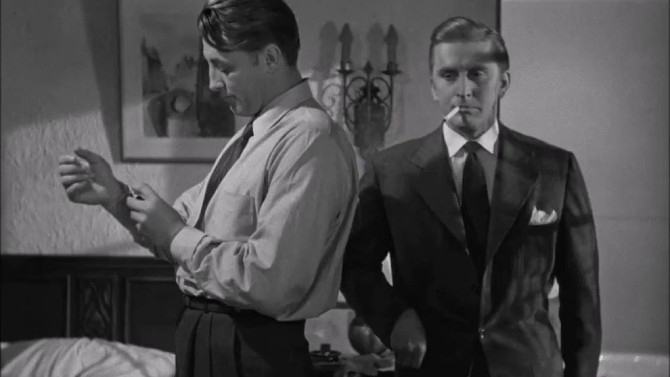
Shadowy Past Equals Grave Future
Out of the PastNovember 4, 2016Though we have all become accustomed to November being coined Movember, there is another moniker that is perhaps lesser known. ‘Noirvember’ has, over the last few years, gone viral, making this eleventh month of the year the perfect one to celebrate the shadowy, gloom filled, doom-laden film noirs of the 1940s and 50s. So, I thought I would start us off with a bang by reviewing the classic 1947 crime noir Out of the Past. Written by Daniel Mainwaring (he wrote the screenplay and the novel the film is based off of under the pseudonym Geoffrey Homes – titled "Build My Gallows High") and directed by Jacques Tourneur (Cat People), past mistakes meet present danger when gas station owner Jeff Bailey (Robert Mitchum), who has been hiding in a small California town after a torrid life, is tracked down by Joe Stefanos (Paul Valentine), a trusted henchman for a smooth but sketchy gangster named Whit Sterling (Kirk Douglas).

